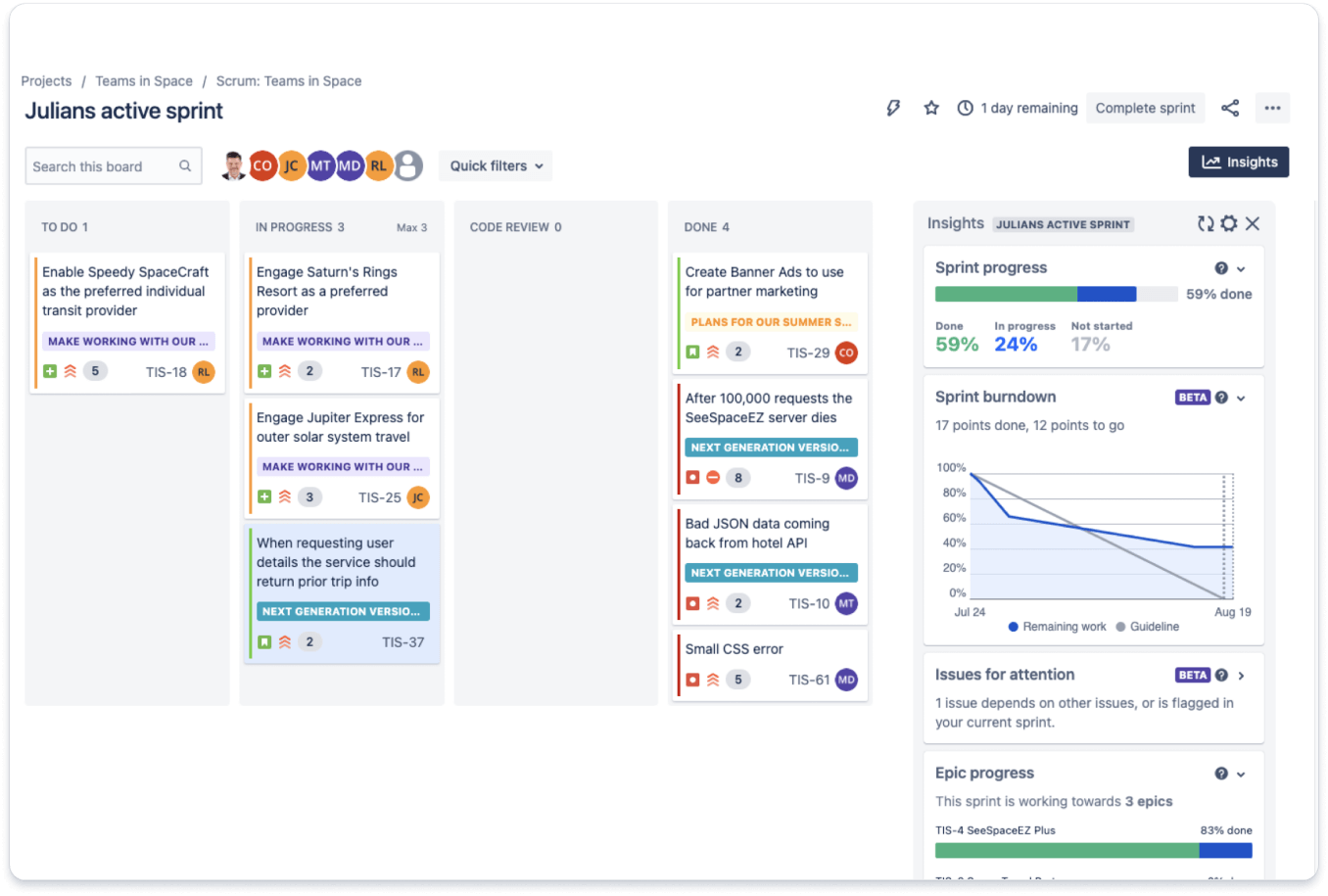가치 흐름 매핑 템플릿
가치 흐름 매핑 템플릿은 비효율적인 부분을 정확히 찾아내고 낭비를 줄이고 제품 및 서비스 부문의 중요한 개선을 위한 프레임워크를 제공하는 시각적 도구입니다.

가치 흐름 매핑 템플릿이란 무엇입니까?
미리 디자인된 레이아웃
단순한 가치 흐름 매핑 템플릿에는 일반적으로 팀원이 더 효과적으로 커뮤니케이션하고 공동 작업하는 데 도움이 되는 기호, 차트 및 다이어그램과 같은 시각 자료가 포함된 체계화된 레이아웃이 있습니다. 이 형식은 팀에서 문제 영역을 식별하고 솔루션을 브레인스토밍하고 워크플로를 지속적으로 개선하는 데 도움이 됩니다.
Open DevOps에 적용
가치 흐름 매핑 템플릿은 개발부터 배포까지의 소프트웨어 제공 프로세스를 시각적으로 나타내므로 Open DevOps에서 기본적인 부분입니다. 이 템플릿은 비효율적인 부분과 병목 현상을 식별하여 소프트웨어 제공 수명 주기를 최적화하고 간소화하는 데 도움이 됩니다.
가치 흐름 매핑 템플릿에는 무엇이 포함됩니까?
지속적 제공을 위한 파이프라인
가치 흐름 매핑을 Jira Software 템플릿과 통합하면 아이디어에서 최종 프로덕션까지의 전체 여정을 포괄하는 지속적 제공 파이프라인을 철저하게 분석할 수 있습니다.
Jira’s customizable templates enable teams to map out each stage, monitor progress, identify bottlenecks, and detect inefficiencies. Jira templates help teams find improvement areas and optimize the entire software development life cycle.
협업 향상
가치 흐름 매핑 템플릿은 공통된 이해, 문제 해결 및 프로세스 개선을 위한 시각적 프레임워크를 제공하여 공동 작업을 지원합니다.
지속적인 개선 지원
가치 흐름 매핑 템플릿은 전체 프로세스를 시각화하여 지속적 개선을 지원하므로 낭비 및 비효율적인 부분을 식별하고 제거하는 데 도움이 될 수 있습니다.
시각적 표현
가치 흐름 매핑 템플릿은 시작부터 완료까지의 전체 프로세스를 설명하므로 교차 기능 팀이 워크플로를 개선하는 방법을 포괄적으로 이해할 수 있도록 합니다.
가치 흐름 매핑 템플릿을 시작하는 방법
관련 소프트웨어 개발 템플릿
DevOps
DevOps
하나의 중앙 집중식 프로젝트에서 소프트웨어를 계획하고 만들고 운영하세요.
Jira Software
스크럼
보드, 백로그 및 타임라인을 사용하여 프로젝트 목표를 향해 나아가세요.
Jira Software
버그 추적
개발 작업 및 버그의 목록을 관리합니다.